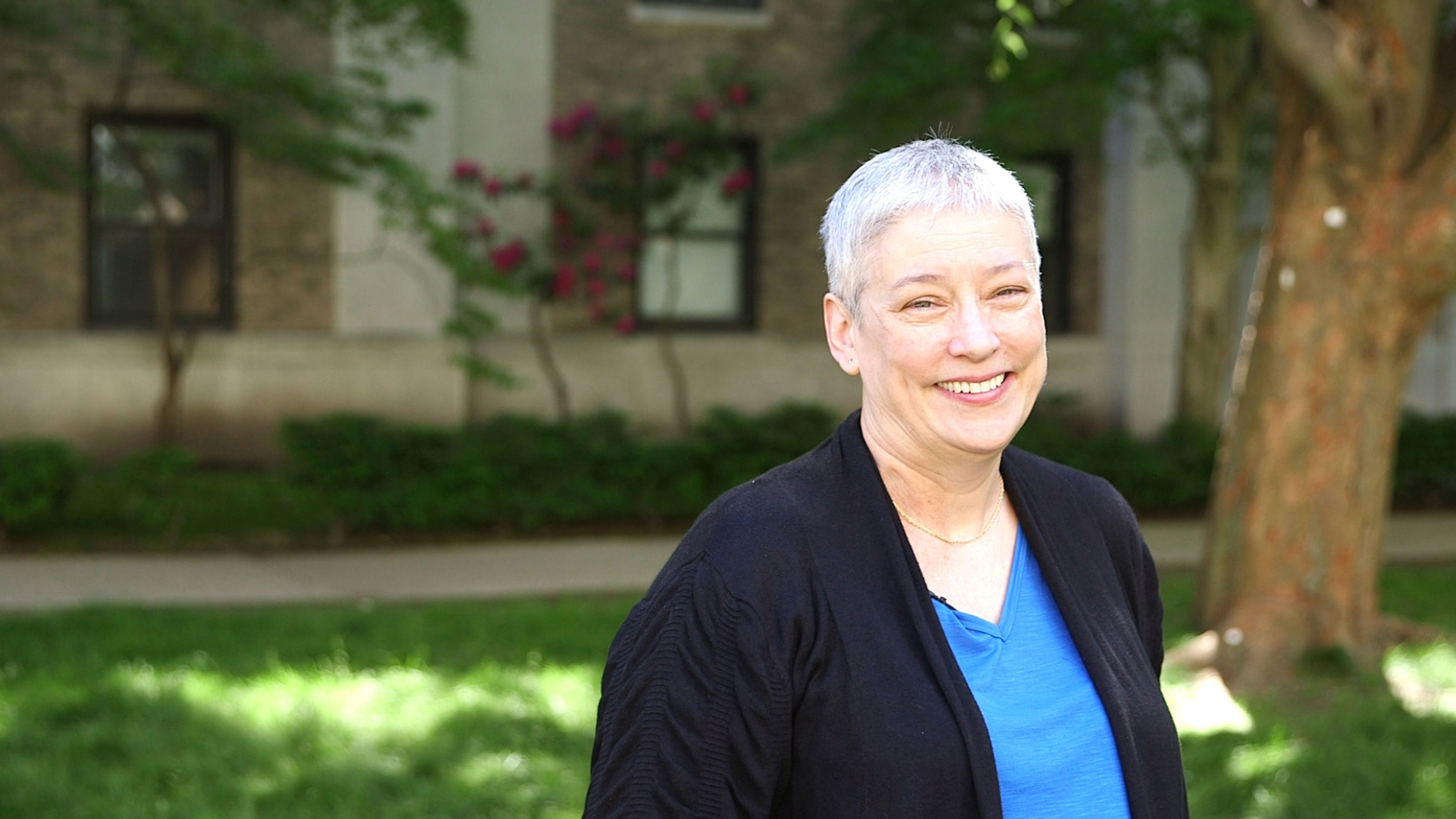
When Janet Freeman-Daily ’78, a retired aerospace systems engineer, was diagnosed with stage III lung cancer in 2011, she knew very little about the disease and options to treat it. But thanks in part to her tight-knit MIT community, a love of research, and a science writing background, she successfully battled the disease and become a prominent advocate for lung cancer patients.
“I had never even thought about lung cancer,” says Freeman-Daily, a nonsmoker. “But I dealt with my diagnosis through research. And I tried to learn everything I could about the disease.”
Having lived in East Campus as an MIT student, Freeman-Daily remained close to her dorm mates and neighbors after graduation. When she mentioned her diagnosis in an East Campus online forum, Dave deBronkart ’72, a fellow cancer patient, introduced her to an online community where patients discuss their diseases and share resources.
As Freeman-Daily’s cancer eventually spread to her collarbone, she became even more involved online. She learned more about treatment options, formed relationships with other patients, and used her science writing background to help communicate complicated topics to them.
“I was one of the few people on the forums with a science background,” she says. “My time at MIT wasn’t about memorizing formulas but learning why science works. And I could help explain that to other people.”
Her online writing eventually led to a cancer resource blog called Gray Connections, speaking engagements at universities and events, and a popular following on social media. “Being a lung cancer activist gives me purpose,” Freeman-Dailey says. “I’m taking what I know, and using skills that I enjoy, to do something that makes a difference in the lives of other people.”
This research and community building also helped Freeman-Daily find out about precision medicine and clinical trials that she was able to take advantage of. Fortunately, her body has shown no evidence of cancer since 2013. But her mission remains steadfast: empower lung cancer patients and eliminate any stigmas around the disease.
“At least two-thirds of current lung cancer patients either never smoked or quit smoking decades ago,” she says. “And there’s far less funding for lung cancer because people tend to think you brought it on yourself. But it shouldn’t make a difference: no one deserves lung cancer, and everyone deserves compassion.”
Keep Reading
Most Popular
Large language models can do jaw-dropping things. But nobody knows exactly why.
And that's a problem. Figuring it out is one of the biggest scientific puzzles of our time and a crucial step towards controlling more powerful future models.
How scientists traced a mysterious covid case back to six toilets
When wastewater surveillance turns into a hunt for a single infected individual, the ethics get tricky.
The problem with plug-in hybrids? Their drivers.
Plug-in hybrids are often sold as a transition to EVs, but new data from Europe shows we’re still underestimating the emissions they produce.
Stay connected
Get the latest updates from
MIT Technology Review
Discover special offers, top stories, upcoming events, and more.